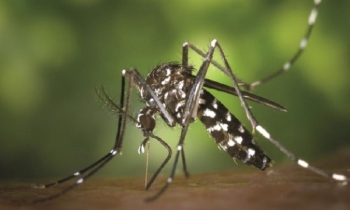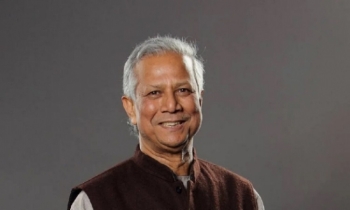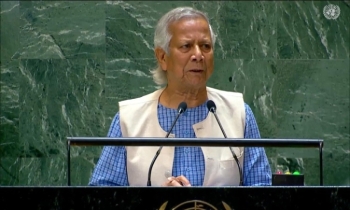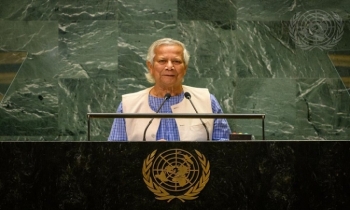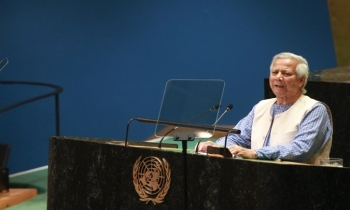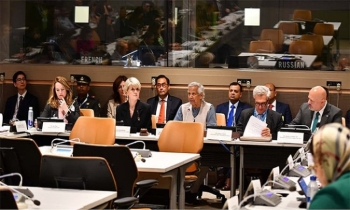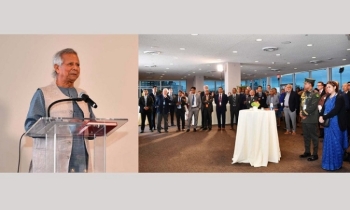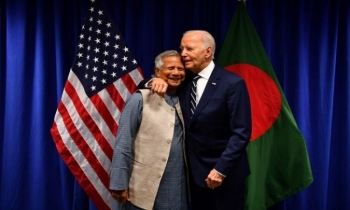British High Commissioner visits Unilever-supported facilities
BI Report || BusinessInsider
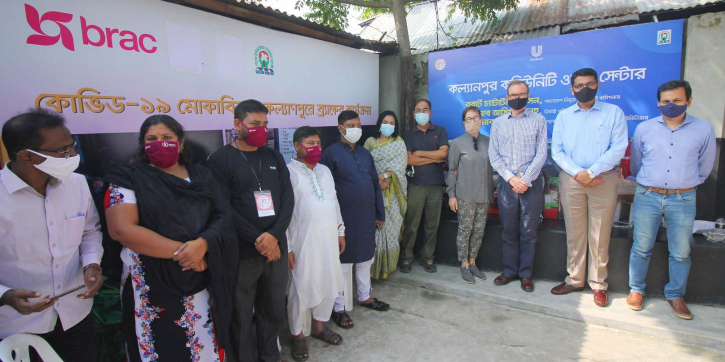
British High Commissioner to Bangladesh Robert Chatterton Dickson visited the Unilever supported Kalyanpur WASH Centre and other Covid-19 initiatives in the capital’s Kalyanpur slum on Saturday.
Chairman and Managing Director of Unilever Bangladesh Kedar Lele, Executive Director of BRAC Asif Saleh, along with other high officials accompanied him during the visit, a press release from Unilever says.
Kalyanpur slum is a residence of about 8,000 dwellers, where residents live under extreme poverty with an average income of Tk 3,725 per family. Access to proper sanitation, safe drinking water and hygienic usable water are scarce here.
Before the pandemic hit hard in March, Unilever Bangladesh Ltd (UBL) and BHUMIJO, a young and expert organization known for designing and running community WASH Centre, jointly built a community toilet in Kalyanpur slum in the capital Dhaka.
The facility has a total of 6 separate toilets, for both men and women along with standard hand-washing space, safe drinking water (Pureit) and laundry facility.
The aim of the WASH Centre is to improve the overall health and hygiene of Kalyanpur Slum Community. Moreover, this partnership with BHUMIJO is helping this young organization to develop a sustainable WASH business model.
The British High Commissioner, UBL Chairman and BRAC Executive Director visited the facility physically and also listened to the experiences by the beneficiaries of the WASH Centre.
Farhana Rashid, Co-founder and CEO of BHUMIJO explained the business model to the visiting delegation.
At the second part of the visit, Dickson learned about another critical initiative – HBCC by BRAC in Bangladesh.
The Hygiene & Behaviour Change Coalition (HBCC) has been jointly set up by Unilever and UK’s Foreign, Commonwealth & Development Office (FCDO) to mount a rapid response to contain the spread of Covid-19.
The HBCC is taking a three-pronged approach, building on Unilever’s tried and tested hygiene interventions: mass communications, behaviour change programmes and digital solutions, focused on hand hygiene and environmental hygiene.
Four organizations – BRAC, Save the Children, International Rescue Committee (IRC) and United Nations High Commission for Refugees (UNHCR) in Bangladesh have partnered up under the coalition.
In total over Tk 62,00,00,000 and Unilever Health and Hygiene products are getting used under HBCC in Bangladesh. They are driving Covid awareness and hygiene behaviour change agendas within their forte as part of the coalition in the country and targeting to impact 13,444,512 people in Bangladesh.
As part of HBCC, BRAC aims to establish communications on best practices for behaviour change during a pandemic and increase the frequency of handwashing and increase the accessibility of hygiene products and facilities in communities for over 10 million people.
By May 2021 and in 20 sub-districts, BRAC aims to establish 1000 handwashing stations and reach 158,000 people through in-person demonstrations.
Both the WASH Centre and BRAC’s initiatives aim to improve the lives of the people living in the slum.
Moreover, as UBL plays a role in establishing proper health hygiene via responsible businesses, it is important to see how these programmes and business principles are impacting their lives.
In this effort, the British High Commissioner and the team interacted with community dwellers and households to gauge out the effects of the WASH Centre and BRAC’s COVID-19 initiatives have over the slum-dwelling community.
To support Bangladesh’s fight against Covid-19, Unilever Bangladesh has spent more than Tk 350 million and has reached out to more than 60 million people in the last 8 months through various programs such as product donation, awareness building as well as improving the health infrastructure.

